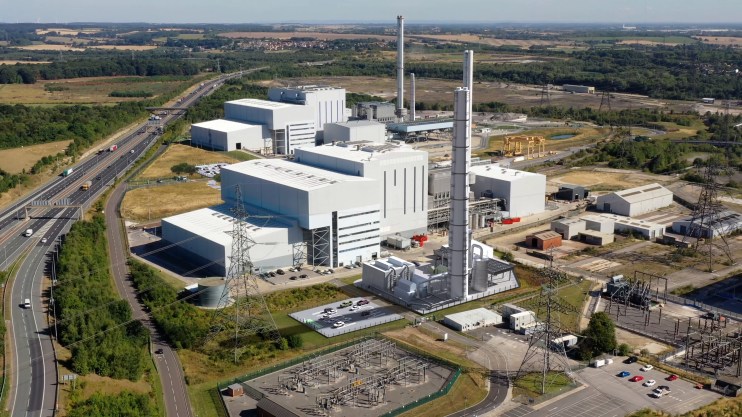UK’s waste-to-energy leader readies £800m carbon capture expansion

The UK’s largest waste-to-energy firm has announced it will invest £800m into the divisive area of carbon capture technology.
Yorkshire-based Efinium today confirmed that it will install carbon capture and storage (CCS) technology at its Ferrybridge 1 and 2 facility in Knottingley, West Yorkshire.
Once operational, the company claims it will be able to capture around 1.2m tonnes of carbon dioxide (CO2) every year, including over 600,000 tonnes of carbon removals — equivalent to taking the carbon emissions of every household in Manchester out of the atmosphere.
The news comes as the UK government is expected to announce this week the expansion of its CCS incentives Track One Sequencing programme, which sees companies bid for contracts that see them paid for removal of carbon from the atmosphere.
The proposals will be put forward for grant support from the UK Government as part of their expansion of the Track-1 cluster sequencing process, due to launch this week.
Should the proposals get the green light, Enfinium’s site could be operational by 2030. If not, the company will need to rely on commercial partnerships where corporations pay for the firm’s CCS capabilities.
A spokesperson for the company said that without the government grant, the project could face years of delays beyond its 2030 opening.
Mike Maudsley, chief executive of Enfinium, said: “To deliver a net zero carbon economy, the UK needs to find a way to produce carbon removals, or negative emissions, at scale.
“Installing carbon capture at our Ferrybridge site would make it one of Europe’s biggest carbon removal projects.”
Carbon Capture as an industry is coming under increased scrutiny. On the one hand, international governments are rolling out subsidies to firms that espouse the cause for carbon extraction in the atmosphere while fossil fuel reliance and renewable energy infrastructures are respectively wound down and ramped up.
On the flip side, the project has multiple case studies, particularly in the U.S., of projects being sinkholes for billions of investment dollars for little production.
Drax, one of the UK’s largest polluters, is pushing on with a carbon capture strategy of its own.
But recapturing carbon from wood pellets takes decades and the off-setting is only substantial with younger, less carbon-rich trees.